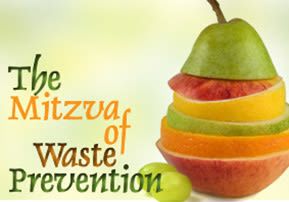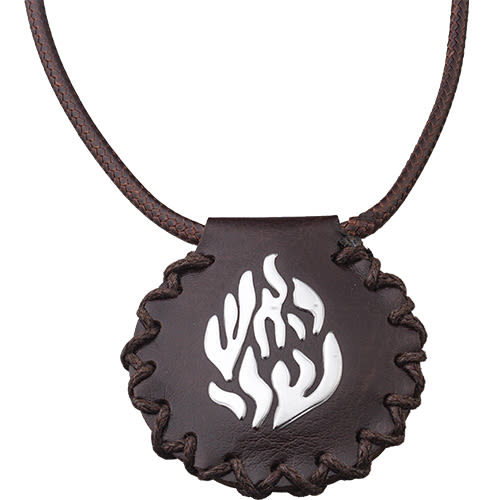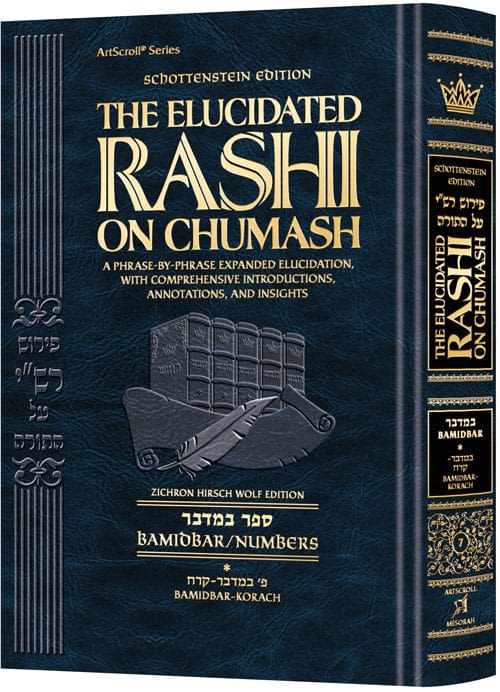
The Mitzvah of Waste Prevention
Rebbetzen Chana Bracha Siegelbaum explains the Judaism’s view on waste: Torah teaches to preserve our environment, to compost and recycle rather than to throw everything away.

In our world of abundance we often take food for granted and are not always careful not to waste it. All the foodstuff thrown out daily by each American middle class household may possibly feed an entire Third World family.
The Torah cautions us not to waste anything in the world, especially not food. The Torah prohibition against destruction and waste is learned from the prohibition against cutting down fruit trees.
“When you shall besiege a city a long time, in making war against it to take it, you shall not destroy its trees by forcing an axe against them: for you may eat of them, and you shall not cut them down; for is the tree of the field a man, that it should be besieged by you?” (Deuteronomy 20:19)
This verse describes a war-situation in which we are forbidden to cut down fruit-trees in the enemy city. Because the fruit-tree gives life to humanity and is intended for food, we are not permitted to cut it down—even in order to conquer the city.
Our sages expanded the above Torah prohibition of “Bal Tashchit”— “do not destroy”—to include vandalism of any nature, even the destruction of human cultural artifacts. The prohibition of “Bal Tashchit” thus includes any wanton or needless destruction of anything on earth.
Maimonides summarized the prohibition as “Take from nature what you need, but do not destroy it!” (Mishneh Torah, The Laws of Kings 6:8-10).
Not only the trees, rather whoever breaks vessels and rents garments, destroys a building and obstructs a wellspring, or wastes food in a destructive way transgresses the mitzvah of “Bal Tashchit” (“don’t destroy”)…. (Rambam, Mishna Torah, Hilchot Melachim 6:10)
Sefer Hachinuch (“The Book of Education”), a popular medieval work that enumerates the 613 commandments of the Torah (based upon Maimonides’ system of counting) and explains them both from a legal and a moral perspective, likewise teaches that the mitzvah not to destroy fruit-trees includes any unnecessary destruction.
The prohibition of destroying fruit-trees during a siege and, likewise, all destruction is included in this prohibition. …Part of this prohibition is not to waste anything like burning or ripping a garment, breaking a vessel or anything else that implies destruction. About this our Sages of Blessed Memory always would say in the Gemara (Kidushin 32a), “behold he transgressed the prohibition of “Bal Tashchit”—(“You shall not destroy”)…. (Sefer Hachinuch, Mitzva 529)
The Sefer Hachinuch makes a connection between character development and avoiding even the slightest waste. He equates unnecessary destruction with “every evil thing” and explains that righteous people who inspire others to come close to the Torah must develop a higher sensitivity and love for everything good in Hashem’s world. Therefore, by conducting ourselves with concern for the environment we gradually accustom ourselves to caring not only for our fellow human but even for all of Hashem’s creation.
The root of the mitzvah is known to teach our souls to love what is good and useful and to cleave to it; through this, the good will cleave to us and we will distance ourselves from every evil thing and every destruction (waste). This is the way of people of good deeds; who love peace, rejoice in the good of creation and bring everyone close to the Torah. They do not destroy anything—even a mustard seed—and it troubles them to encounter any destruction or harm. If they can act to save anything from destruction, they use their entire strength to do so. (Sefer Hachinuch, Mitzvah 529)
We live in an era of instant gratification. The western “consumer culture” (an outgrowth of a hedonistic Roman perspective) persuades us to concern ourselves with our own immediate comfort without considering its future consequences. However the Torah teaches us that we must make an effort to compost and recycle rather than to throw everything away. Otherwise, in the near future there will no longer remain any place called “away.”
Since plastic is a material that does not decompose, we need to minimize its use. A simple way to make a difference is to reuse plastic bags over and over. For example, instead of taking new plastic bags from the supermarket, we can bring our own bags from home.
Composting can be understood as a הידור מצווה “Hidur Mitzvah” (The highest way of glorifying the mitzvah) of “Bal Tashchit” (The prohibition against destruction and waste). Recycling is a basic yet important way of engaging ourselves in the Jewish goal of תיקון עולם Tikkun Olam– (Repairing of the World). By recycling, we can elevate even the “lowest” aspects of our physical world, reconnecting to their higher capacity sparks of holiness and purpose within each element that we work with. That’s our task here on earth.
(Rebbetzen Chana Bracha Siegelbaum is Director of Midreshet B’erot Bat Ayin in Gush Etzion)











Tell us what you think!
Thank you for your comment!
It will be published after approval by the Editor.